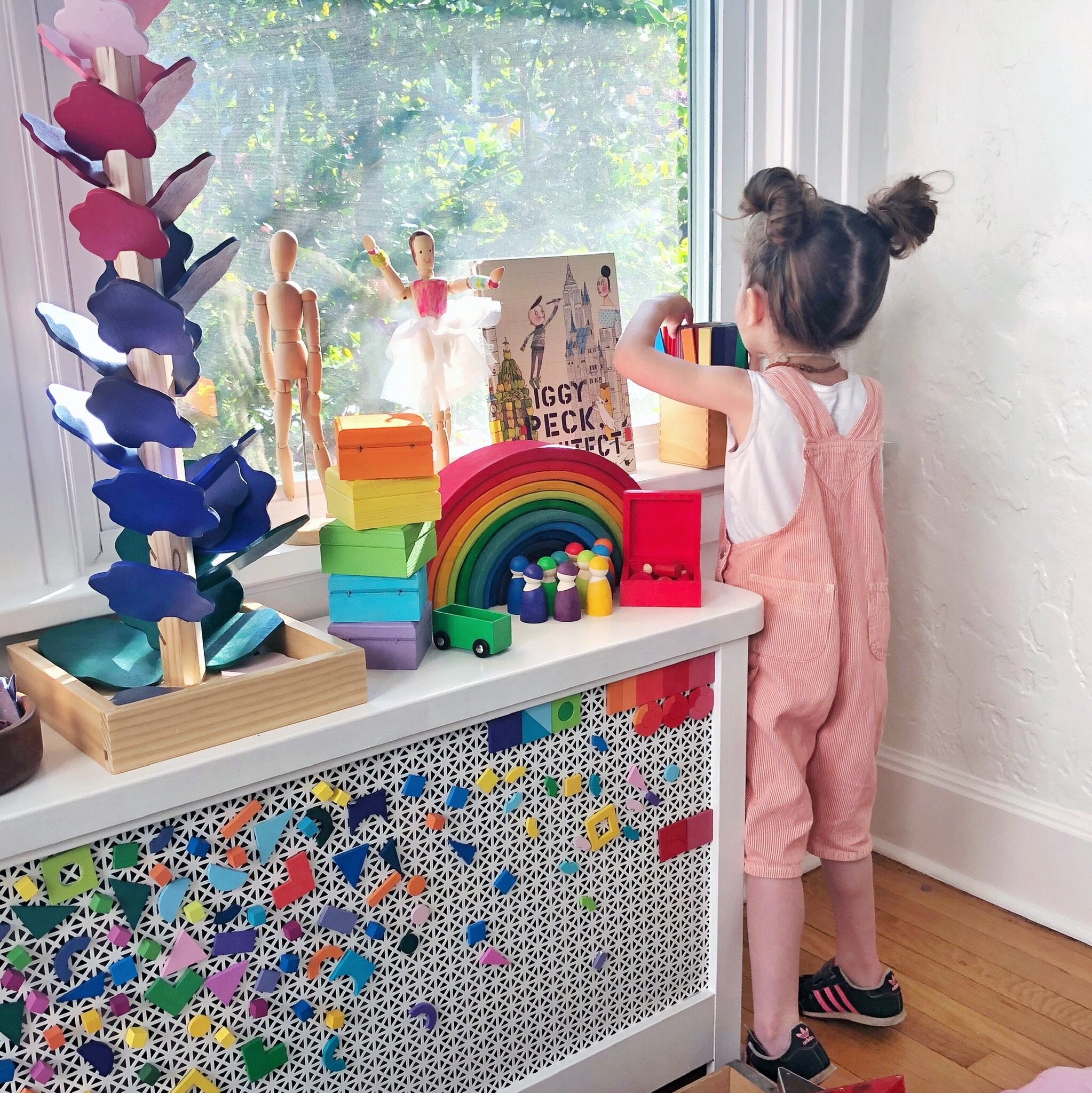How to Use Narration to Boost Your Child’s Independent Play Skills
/Have you ever started asking your child questions while they are playing independently?
“Where are you going to put that green block? Are you going to stack it on top of the red? Here, try it this way!”
“What are you going to do next? Maybe you could play with the magnetic tiles - you haven’t played with those in a long time.”
Try this instead - NARRATION
Narrating is one of the most effective ways to boost play skills! By narrating their play instead of asking questions, we allow our children the opportunity to be the expert in their own play.
Sometimes when we ask questions while our kids are busy at play, we unintentionally insert our own ideas and the magic of independent play doesn't fully come to life.
By switching the narrative to narrating your child’s play, you give them the confidence to be the leader of their own play!
Let Your Children Lead
There are a lot of benefits to your child playing on their own. Independent play encourages imagination and creativity, and supports cognitive development and self-regulation skills.
But, helping your child to be their own leader while playing independently goes a lot further than stacking blocks in the playroom.
Narration shows your child that you value the work they are doing.
Independent play is just that - independent.
Engaging with your child while they are playing doesn’t mean you have to be a playmate.
Narration builds your child's confidence and helps them see themselves as CAPABLE.
Helping your child feel capable and confident is one of the greatest tools you can give them. Independent play fosters problem-solving skills and patience. When you narrate that what your child is doing is working for them and that they are doing a great job, you instill in them a confident foundation that they will carry throughout their entire life!
(Interested in another way you can instill confidence in your kids? Read this blog.)
Narrating your child’s play also:
Allows you to build language skills with your child without inserting your own ideas.
Helps your child reengage when they start to lose focus.
Helps build your child’s independent play skills.
How To Boost Your Child’s Play Skills Through Narration
Next time your child is independently playing and you want to engage with them, try narrating their play! Instead of asking questions, try phrases along these lines:
“You are making long, straight lines and curly, whirly squiggles!”
“I can’t wait to see if you’ll build those blocks up high or if you’ll use them flat on the ground.”
“Those dollies are sad and you're holding them. I bet you know a lot about taking care of babies.”
“I can see how hard you are working. I’ll move over here so I don’t get in the way.”
“That game you are playing reminds me so much of the book we read. That's so interesting!”
Subscribe To My Newsletter
Check Out Our E-Books!
THE PLAY PLAN
The Play Plan is an ebook containing play invitations that are easy to set up, inexpensive, and apply children of all ages. The 25 play prompts are divided into five categories and use items that you most likely already have at home. These play prompts consider children of all ages, all developmental stages, and all learning capabilities. Each prompt can be tailored to fit your unique child’s needs. Play is meant to be simple.
THE BIG KID PLAY PLAN
Are you ready to get your big kids (six through teen) back to play? 5 Basic Materials turned into 25 irresistible play prompts for your big kids. …Because play should be simple. Even when your littles are big















Rescuing them from discomfort also robs them of resilience.